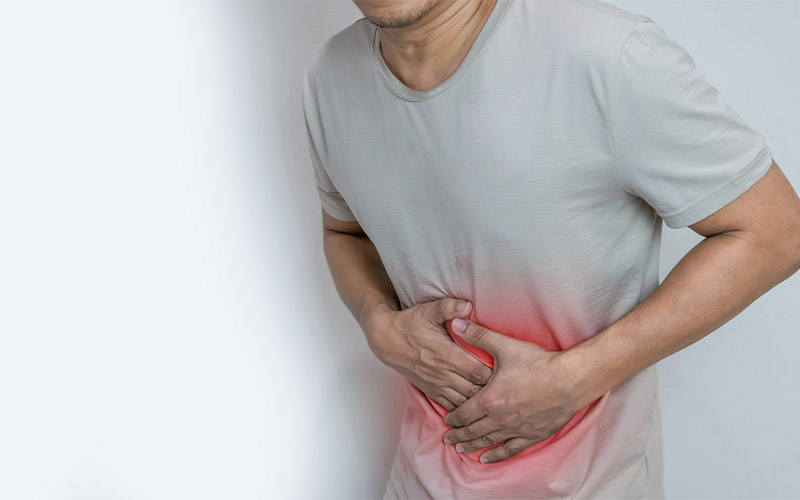Top 10 Natural Remedies for Painful Bladder Syndrome Relief
2024-06-18 / RG STONE HOSPITAL / Gall Bladder Stone

Painful bladder syndrome, also known as interstitial cystitis, is a chronic condition characterized by pelvic pain, pressure, and sometimes frequent urination. The exact cause is unknown, but it is thought to be related to a defect in the bladder lining, allowing toxic substances in the urine to irritate the bladder walls. While there is no cure, there are several natural remedies that can help provide relief from the symptoms.
-
Dietary Changes Certain foods and beverages can irritate the bladder and worsen symptoms. Eliminating potential bladder irritants from your diet may help reduce inflammation and pain. Common culprits include:
-
Caffeine (coffee, tea, sodas)
-
Alcoholic beverages
-
Acidic foods (tomatoes, citrus fruits, vinegar)
-
Spicy foods
-
Artificial sweeteners
Increase your intake of fruits and vegetables high in antioxidants, which can help reduce inflammation. Good options include blueberries, cherries, spinach, and bell peppers.
-
Hydration Staying well-hydrated is crucial for diluting the urine and flushing out potential irritants. Aim to drink enough water so that your urine is pale yellow or nearly clear. However, avoid drinking excessive amounts of fluid, as this can overtax the bladder.
-
Herbal Remedies Certain herbs may help soothe the bladder lining and reduce inflammation. Some promising options include:
-
Marshmallow root - Contains mucilage that can coat and protect the bladder lining.
-
Cornsilk - Acts as a diuretic and anti-inflammatory, helping to flush out the bladder.
-
Uva ursi - Has antiseptic properties that can help fight urinary tract infections.
-
Pumpkin seed - Rich in anti-inflammatory nutrients that may ease bladder discomfort.
Always consult your doctor before taking herbal supplements, as they can interact with medications or have side effects.
-
Heat Therapy Applying a heating pad or taking warm baths can help relax pelvic muscles and provide relief from bladder pain and pressure. Be careful not to overheat the area, as excessive heat can worsen inflammation.
-
Stress Management Stress and anxiety can exacerbate bladder symptoms. Incorporate stress-reducing activities into your routine, such as yoga, meditation, deep breathing exercises, or progressive muscle relaxation.
-
Pelvic Floor Exercises Strengthening the pelvic floor muscles through Kegel exercises can help improve bladder control and reduce episodes of urgency and frequency. Consult a pelvic floor physical therapist for guidance on proper technique.
-
Acupuncture, a traditional Chinese medicine, may help relieve bladder pain and improve overall pelvic health. It works by restoring the balance of energy flow (qi) throughout the body.
-
Bladder Training Bladder training involves gradually increasing the intervals between bathroom visits to retrain the bladder and reduce the urge to urinate frequently. This technique can help improve bladder control and capacity over time.
-
Vitamin and Mineral Supplements Certain vitamins and minerals may help reduce inflammation and support bladder health. Consider supplementing with:
-
Vitamin C - A powerful antioxidant that can help protect the bladder lining.
-
Vitamin E - Another antioxidant that may ease bladder discomfort.
-
Quercetin - A plant pigment with anti-inflammatory properties.
-
Calcium and magnesium - Essential for proper muscle function, including the bladder muscles.
Always consult your doctor before starting any new supplement regimen.
-
Probiotics Probiotics, or "good" bacteria, can help promote a healthy gut and may also positively impact bladder health. Look for probiotic supplements containing strains like Lactobacillus and Bifidobacterium.
It's important to note that while natural remedies can be helpful, they should not replace conventional medical treatment for painful bladder syndrome. Work closely with your healthcare provider to develop a comprehensive treatment plan that addresses your specific needs and symptoms.
Remember, everyone's experience with painful bladder syndrome is unique, and what works for one person may not work for another. Be patient and keep an open mind as you explore various natural remedies. With time and persistence, you may find the right combination of strategies to help manage your symptoms and improve your overall quality of life.
Categories
Hernia Repair
Appendicitis
Piles
Urological Treatment
Hernia treatment
Enlarged Prostate (BPH)
Gall Bladder Stone
Urinary / Kidney Stone
Vitamins
Indian Health Care System
Exercise
Obesity
Female Urinary Incontinence
Single Incision Laparoscopic Surgery (SILS)
Kidney Cancer
Bladder Cancer
Ovarian cancer
Nephrology
Bariatric Surgery
Kidney Function Test
Female Urology
Radiation Therapy

